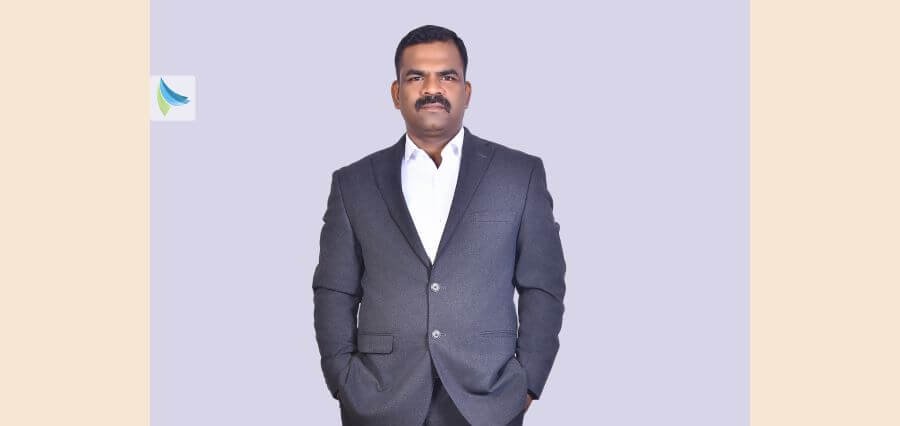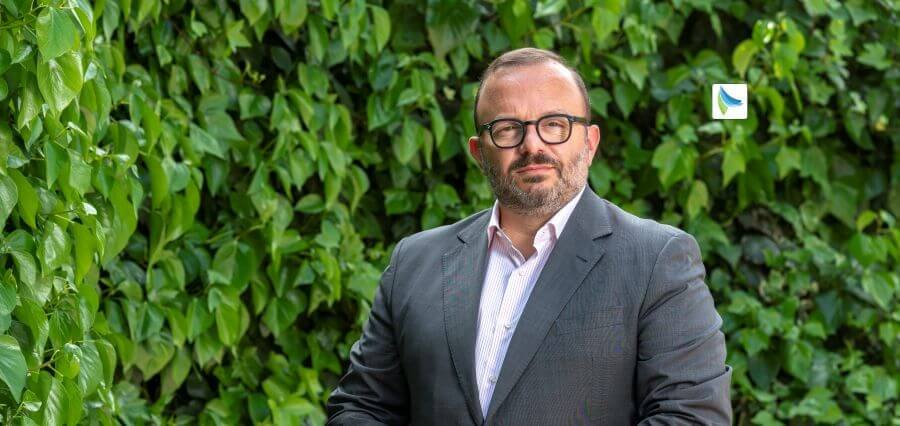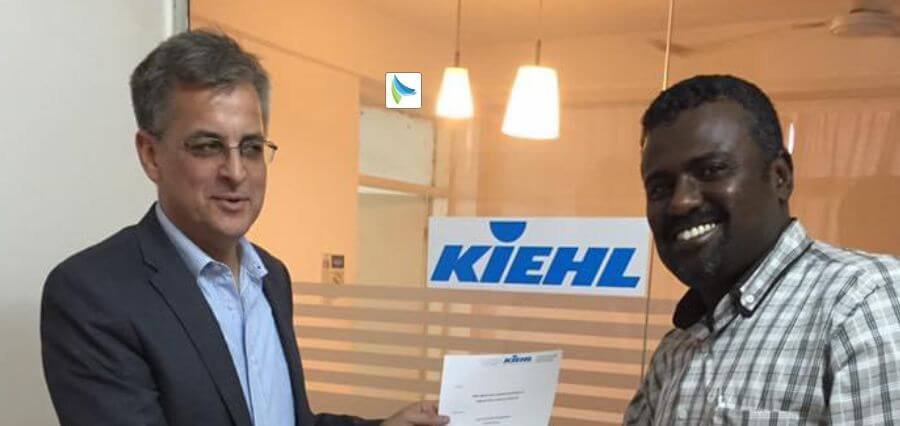No matter how exceptional of products or services a business offers, the provision needs to be known by the mass for them to reach out for it. A business distributing its product or service almost always meets a stance when its products need a push to outreach. This aspect of building a business call for marketing and brand management.
The concept of marketing dates way back in history, but the concepts utilized in marketing covet the most up-to-date approaches rather than future-oriented ones. Comprehending this aspect of marketing in mind, Doug Zarkin, CMO of Pearle Vision (part of the EssilorLuxottica brand portfolio), brings curated marketing strategies that are not only target-oriented but also utilize the incorporation of emerging trends.
Doug has fostered an enhanced degree of accessibility for consumers in a new era of tech empowerment. He is a proven modern marketing leader committed to driving growth and human impact—both inside and outside corporations. He is a consumer champion, brand storyteller, and influencer within the C-suite, and critically at the associate level, Doug is a skilled executive in not just developing but implementing strategic change and innovation throughout even the most complex organizational structures.
In an interview with Insights Success, Doug sheds light on the journey that led him to become a successful and influential marketing leader.
Below are the highlights of the interview:
Briefly describe your professional journey up until now.
Being passionate about teams, talent, and culture, as well as the redefinition of brands in categories such as health and wellness, fashion, beauty, entertainment, and hospitality, I have tried to foster an enhanced degree of accessibility for consumers in a new era of tech empowerment. I am committed to driving growth and human impact—both inside and outside corporations.
My approach to building brands through “thinking human” has generated a proven track record of results across various verticals. I have always viewed myself as a consumer champion and brand storyteller in not just developing but implementing strategic change and innovation throughout even the most complex organizational structures.
Beginning my career in advertising, I led diverse product lines in the CPG, retail, and entertainment space. As Vice President of Business Development and Client Services within the Grey Global Group network, I launched a new partner company, G-WHiZ! Entertainment, growing it to $40 Million in billings within 2 years with a focus on global youth, entertainment, and leisure marketing. There I led assignments from ABC, The NHL, The Food Network, Warner Bros., Konami Video Games, W Hotels, and Reebok.
In 2002, I went client-side, joining Avon Products, Inc. as their Director of Marketing and Creative Services. There, I launched “Mark,” a domestic and international lifestyle brand targeting young women. “Mark.” was a success, amassing $118 million in sales in its first 18 months. From Avon, I continued building brands, maturing the Victoria’s Secret Pink brand from a test market to a $400 million national brand as their Vice President of Marketing. Later, I went on to multiple roles at global apparel companies Warnaco and Kellwood.
In 2012, I joined EssilorLuxottica as their Vice President & Chief Marketing Officer for Pearle Vision, where I am currently responsible for leading the marketing for their global optical franchise business. My work at Pearle Vision leading the brand transformation has helped to propel it atop Entrepreneur Media Top 500 Franchise Brand list and solidified its rank among the Top 10 most profitable franchise brands alongside mega brands McDonald’s and Dunkin.
With success has come some recognition from my peers, earning placements on several “Top Marketers” lists, multiple North American Effie Awards, and a Clio award. It has twice had me recognized as Innovative Marketer of The Year by The CMO Club and placement on Crain’s NY Most Influential Marketers. My work is currently featured in a Harvard Business School case study on brand rejuvenation.
What challenges did you face along the way?
To what degree I’ve achieved success, I can say without reservation that it wasn’t handed to me. Breaking through the clutter of a super competitive marketplace and finding opportunities to participate in stretch assignments to more holistically understand how sustainably build a brand and business were major challenges I encountered in my journey.
But the most challenging and, dare I say, important was earning how to lead. While I’ve been inspired by most of the leaders, I’ve had the chance to work with, unfortunately, I’ve also been exposed to some pretty infamous ones. Learning to navigate, survive and attempting to thrive certainly was a test.
Undergrad taught me how to memorize, and graduate school taught me how to think; it wasn’t until I started working that I started to journey and understand how to effectively lead people and projects. At the core of my leadership style are really 3 elements: hire talent for passion, celebrate their progress and require purposeful decision-making. As I think back to those leaders whose behavior and style raised red flags, I am actually grateful for those experiences because when you think about it, learning the type of leader I didn’t want to be; has been as invaluable as learning how to lead.
What significant impact have you brought to the Marketing sector?
A clear and pointed perspective on the use of data and how it fits into the decision-making process for marketers. Also, I believe I’ve helped to stimulate a discourse on the power of thinking human and appreciation that your target are people, not simply data points on an excel chart.
Broadly I think as I’ve shared the Pearle Vision success story, I’ve provoked an interesting dialogue on the premise regarding emotional versus rational decision-making and how that impacts the development of work (reinforcing the importance of showcasing “the how” and not just “the what”).
Tell us about Pearle Vision and its foundation pillar
Our Commitment to Genuine Eye Care Began with Dr. Stanley Pearle.
“There’s no question in my mind that the better stuff you have, the more success you have. And if you have a second-rate staff, you don’t prosper. We always recognized that people were the most important aspect of the service we were offering,” – Dr. Stanley Pearle
Dr. Pearle founded the Pearle Vision business in 1961 with a small office in Savannah, Georgia, with five employees—and a commitment to excellence. “Pearle Optical” offered three primary services: the convenience of an Independent Doctor of Optometry, prescription fulfillment right there in the lab, and the biggest selection of frames in Savannah.
An innovative man, Dr. Pearle didn’t stop with Georgia. He was the first optical retailer to create an optical company on a large scale with nationwide advertising. In 1981, Pearle Vision began offering franchises. More than 60 years and hundreds of companies and Licensed Owners of EyeCare Centers later, Dr. Stanley Pearle’s vision is a household name.
How does your expertise in Marketing advance the overall performance of Pearle Vision?
I’ve brought a unique understanding of the intersection of brand vs performance marketing and how they need to complement each other to create sustained saliency while also fiercely advocating for the consumer. I was disciplined about marketing being about positioning, which is about the art of sacrifice. For me, F.O.M.O. (Fear of Missing Out) is not a marketing strategy or an effective business-building approach.
Appreciation and mutual respect for the importance of operationalizing any marketing strategy is again something that I am passionate about. I believe marketing without execution is nothing more than words on paper and wasted effort/money. At Pearle Vision I’ve had the opportunity to work with some of the best.
What are the recent advancements in the Marketing sector, and how is Pearle Vision leveraging these transformations to enhance its operations?
Our heavy lean is into the online multi-patient scheduler, allowing a person, when they are prompted or self-realize the moment they need care, to schedule exams for multiple members of the family all at once. This capitalizes on the real-time movement in the healthcare sector broadly visibly with the rise of urgent care facilities and traffic.
We’ve leaned into shorter and more digestible content in the upper-funnel video as more of the consumer attention is moving into streaming and other short-form online content where commercials are viewed even more negatively versus traditional liner tv, where I’ve felt the consumer is more tolerant of extended messaging from brands.
In your opinion, what will be the next significant change in the Marketing industry, and how are you preparing for it?
Undoubtedly, it is the aggressive shift back from programmatic toward contextual targeting. As cookies move out of our lives, brands are going to once again need to think more prominently about contextual environments for prospecting.
We can, I believe, expect a reduction in the use of influencer marketing. Consumers are on the verge of losing patience with the influx of endorsement marketing dominating their social spaces.
What was once a source of mindless entertainment, escapism, so to speak, has become the Time Sq. of marketing messaging. While ambassadors are vital to building brands, there will likely be a rightsizing of the use of influencers in the marketing mix.
What are your goals for the upcoming future?
Professionally, I want to continue to find myself in a position to make a difference. Both as a leader and as a human being.
Personally, I want to be the best husband and father I can be. I think I am pretty good, but with a 15yr old daughter and 13yr-old son, they are constantly reminding me that parenting is a moving target. When you think you have it figured out, you don’t. One day perhaps I’ll also figure out how to properly load the dishwasher as I’ve been reminded there is a right and a wrong way….who knew?! And lastly, I’d like to perfect my one-handed backhand. It’s functionable but not the weapon that it needs to be.
What advice would you like to give the next generation of aspiring business leaders?
Focus as much on perfecting “the how” as you do on “the what.” Take the time to think about how you go about leading and driving for results. I’ve made so many mistakes in the course of my career because I was so focused on the output that I lost sight of the pleasure and fun of the journey itself. That is my only regret and the only thing I wish I could go back, and course, correct.



















